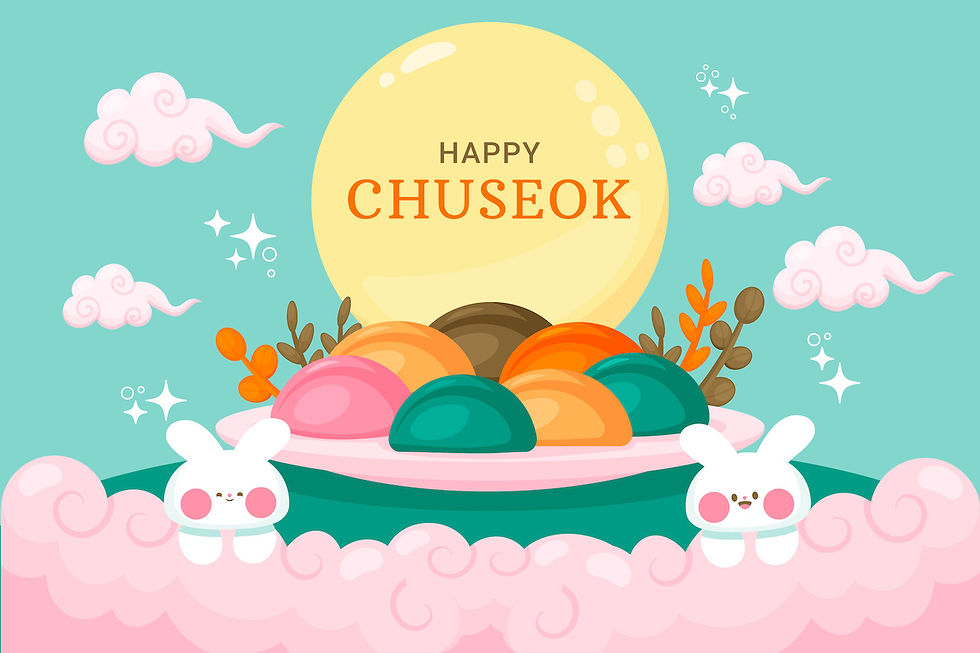Jeongwol Daeboreum: Korea’s Traditional Full Moon Celebration
- Sungmin (Min) Han(Legacy)
- Feb 1, 2025
- 2 min read

Every February, South Korea comes alive with energetic traditions and ceremonies to celebrate Jeongwol Daeboreum, the first full moon of the lunar calendar. From lighting up the night with dazzling fires to sharing symbolic foods, this event celebrates unity and hope for the new year. Jeongwol Daeboreum, formed by agricultural practices, combines community joy and religious thoughts to represent the connection between people and nature.
The very main part of the celebration is the making and sharing of ogokbap, a special dish made up with five grains that represent abundance and harmony. During the ceremony, families and neighbors gather to share delicious meals with traditional side dishes. Most importantly, Sharing ogokbap is believed to bring good fortune and enhance relationships.
After a delicious meal, the night is lit up by jwibulnori, a ritual in which participants swing cans with burning flames. This practice is both an exciting show and a symbolic act of avoiding misfortune. Another ritual celebrated is daljip taeugi, which involves the burning of hay mounds as moon sacrifices, along with prayers for abundant crops. These flame displays are beleived to filter negative energies for the year ahead and also bring communities together in the shared hope for the future.
During Jeongwol Daeboreum, families and communities gather to respect their heritage, share their hopes, and strengthen the connections that will carry them through the year under the brilliant light of the first full moon. This tradition provides a distinct and active cultural experience, making February an excellent month for tourists to visit South Korea. For anyone looking for a meaningful experience with Korean culture, Jeongwol Daeboreum is one of the best traditions that delivers a remarkable experience to Korea’s fascinating cultures.





Comments